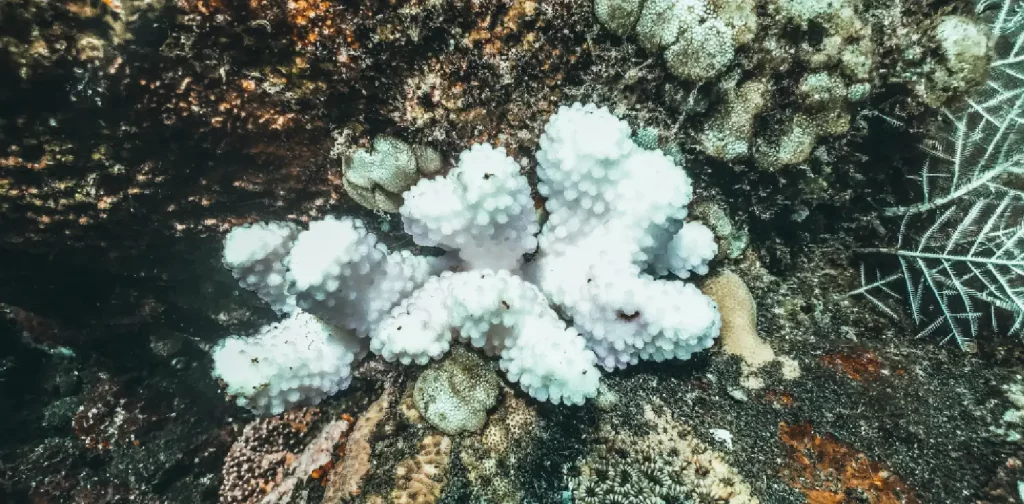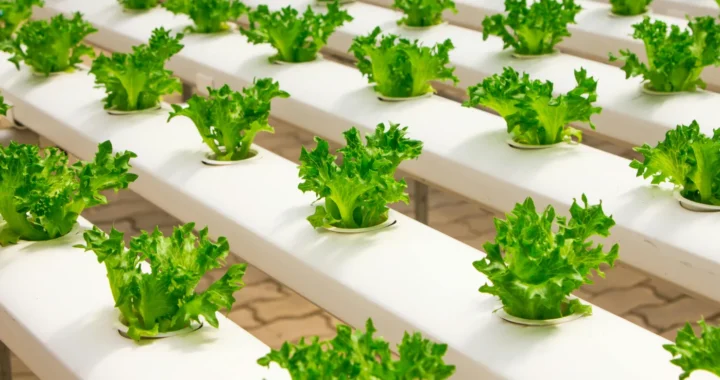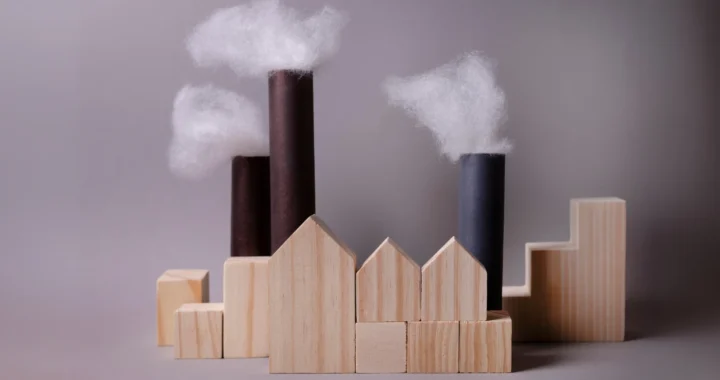Halting Coral Bleaching Is an Urgent Matter

Photo: Naja Bertolt Jensen on Unsplash.
The natural environment is the foundation of our lives on Earth. A crack in the foundation can bring the entire structure to the brink of collapse. As the global temperature rises, marine ecosystems suffer from widespread coral bleaching.
Underwater Architects
Coral reefs are underwater ecosystems made up of millions of tiny coral polyps. These small animals produce calcium carbonate exoskeletons to form hard corals, which are the structural foundation of reefs. Globally, these ecosystems exist in over 100 countries and territories.
Approximately 25% of marine species’ lives are supported by coral reefs, from algae to small fishes. The United Nations Environment Programme dubbed coral reefs’ underwater architects’ due to their crucial roles as habitat, breeding ground, and protective shield for those marine species. As a result, coral reefs get one of their most striking features: their colors. While the skeletons are originally plain white, this ecosystem gains its colors from the thousands of species living in it.
Unfortunately, the warming ocean has led to widespread coral bleaching worldwide.
Coral Bleaching
Despite the pledge to limit global heating, the Earth continues warming up. The ocean is no exception. The warming ocean has stripped coral reefs of their colors, a phenomenon known as coral bleaching.
When the water is too hot, corals can become stressed and expel the zooxanthellae algae, a species living in the ecosystems. The algae contribute to coral reefs’ survival through photosynthesis and add colors to the ecosystems. So, the prolonged absence of the algae due to heat stress can cause corals to fade and eventually die.
The first major case of mass coral bleaching occurred in 1998, destroying around 8% (6,500 km2) of the world’s coral. Furthermore, the UNEP noted that between 2009 and 2018, the world lost approximately 14% of its underwater architects. In April 2024, National Oceanic and Atmospheric Administration (NOAA) scientists documented mass coral bleaching across the tropics, including in Australia’s Great Barrier Reef.
“From February 2023 to April 2024, significant coral bleaching has been documented in both the Northern and Southern Hemispheres of each major ocean basin,” said Derek Manzello, Ph.D., NOAA CRW coordinator.
NOAA scientists further explained that the current speed of coral bleaching events does not provide sufficient intervals for coral reefs to recover. “As the world’s oceans continue to warm, coral bleaching is becoming more frequent and severe. When these events are sufficiently severe or prolonged, they can cause coral mortality, which hurts the people who depend on the coral reefs for their livelihoods,” Manzello continued.
Actions Needed
The title of underwater architect given to coral reefs is not without reason. Beyond being a vital supporter of marine life, coral reefs are also crucial for the economy through fisheries and tourism. Additionally, they can provide a buffer for coastal areas, protecting against floods, storms, and waves. Therefore, halting coral bleaching is an urgent matter.
Protecting our coral reefs will require extensive efforts from governments, businesses, researchers, and civil society. Addressing greenhouse gas emissions and transitioning to cleaner and just energy resources must be the top priority for countries worldwide to limit global heating. Meanwhile, specific and targeted efforts, continuous monitoring, evaluation, and collaboration are also essential in ocean conservation efforts.
Editor: Nazalea Kusuma

Subscribe to Green Network Asia
Strengthen your personal and professional development with cross-sectoral insights on sustainability-related issues and sustainable development across the Asia Pacific and beyond.

Kresentia Madina
Madina is the Assistant Manager for Digital Publications at Green Network Asia. She graduated from Universitas Indonesia with a bachelor's degree in English Literature. She has three years of professional experience working on GNA international digital publications, programs, and partnerships particularly on social and cultural issues.


 How the Manosphere Is Reshaping Young Men’s Identity
How the Manosphere Is Reshaping Young Men’s Identity  How Plant the Emirates Aims to Support Food Self-Sufficiency in the UAE
How Plant the Emirates Aims to Support Food Self-Sufficiency in the UAE  GRI’s Updated Sustainability Standards on Climate Change and Energy
GRI’s Updated Sustainability Standards on Climate Change and Energy  Looking into Biochar as a Bioremediation Agent
Looking into Biochar as a Bioremediation Agent  Australian Climate Visa for Citizens of Tuvalu: Showcasing cross-border partnership in light of the climate crisis
Australian Climate Visa for Citizens of Tuvalu: Showcasing cross-border partnership in light of the climate crisis  Nickel Mining in Raja Ampat and the Widespread Cost of Natural Resource Exploitation
Nickel Mining in Raja Ampat and the Widespread Cost of Natural Resource Exploitation